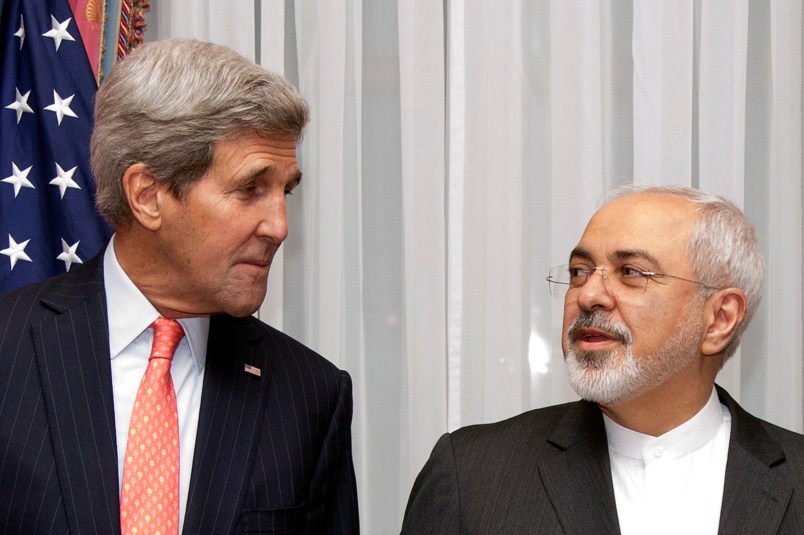Here is a good summary of some things to look at as we move toward what appears to be the endgame of the Iranian nuclear negotiations. One thing Jeff Goldberg points out is that any near, or frankly even long-term, threat of an Iranian nuclear attack is at best a secondary issue. The immediate and real issue is how regional actors see the agreement – particularly Saudi Arabia and perhaps Egypt. Do they believe that the agreement walls off the Iranians’ ability to become a nuclear power enough to refrain from starting a drive for their own nuclear weapons? That is a critical test of any agreement.
There’s another aspect to this drama that is important to understand in order to put everyone’s reactions into a proper context. You’ve heard a lot about not only the Israelis’, but also the Saudis’ and other Arab states’, fears about this deal. This isn’t just fluff kicked up by domestic warmongers and partisans. The key is why are they so upset.
Saudi Arabia, you’ll note, doesn’t fight its own wars. We fight them. For understandable reasons, the Saudis – and other Arab states – would greatly prefer the Iranians were out of the nuclear business entirely. So does the United States. But at what cost? For the Saudis, if it means war, well, that’s what it will take. Having Iranian oil bottled up probably is not the end of the world, either. It’s not that – I think – the Saudis can be indifferent to the regional consequences of a war between the US and Iran. But making the Iranian nuclear program go away is our problem as the great power and their protector.
So anything short of that is disappointing. Not having a deal doesn’t necessarily and immediately lead to war. The Iranians are at the negotiating table because the sanctions regime, as well as the covert war of sabotage by the US and Israel, is crippling. So it is possible that if there is no deal they will come back with more concessions as they get more desperate. (But remember, while the previous administration was ‘standing tough,’ the Iranians made leaps and bounds progress on their nuclear program.) At the end of the day though, the alternative to a negotiated settlement or a nuclear Iran is war. So even though the choice isn’t necessarily confronted on today’s arbitrary deadline, that is the ultimate choice. And the pros and cons of any option can only be honestly and realistically evaluated in that context, with those choices.
And remember, the Saudis don’t (or didn’t until a few days ago) fight their own wars. We do.






